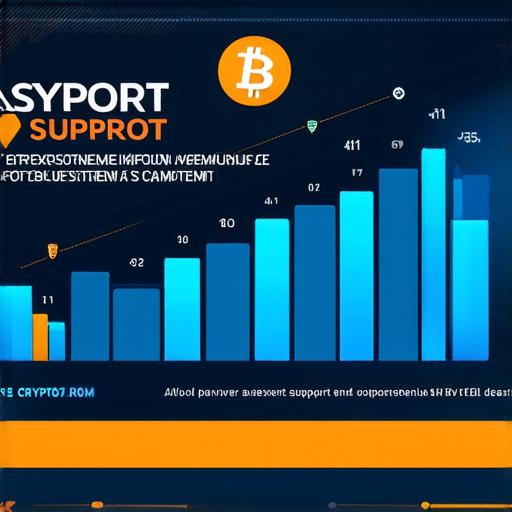Crypto support refers to the various tools and services that are available to help developers build and maintain applications that use cryptocurrencies. These tools include wallets, exchanges, payment gateways, and other infrastructure that enables users to buy, sell, and store digital assets. In this article, we will explore what crypto support entails and how it can help developers create successful cryptocurrency-based applications.
Crypto Wallets: The Heart of Crypto Support
The most important tool in a developer’s arsenal when building a cryptocurrency application is a reliable wallet. A wallet allows users to securely store and manage their digital assets, making it easy for them to buy, sell, and spend their coins. There are many different types of crypto wallets available, each with its own set of features and benefits.
Hot Wallets
Hot wallets are connected to the internet, allowing users to access their coins quickly and easily. However, they are also more vulnerable to hacking attacks, so they should be used with caution.
Cold Wallets
Cold wallets are offline wallets that are not connected to the internet, making them much more secure than hot wallets. However, they are also less convenient to use, as users cannot access their coins as easily.
Paper Wallets
Paper wallets are a low-tech option for storing cryptocurrencies, consisting of a piece of paper with a private key and a public address. They are easy to use and secure, but users must be careful not to lose the paper or damage it in any way.
Exchanges: The Gateway to the Crypto Market
Another key component of crypto support is an exchange. An exchange is a marketplace where users can buy and sell cryptocurrencies. Exchanges can be used to trade any type of digital asset, including Bitcoin, Ethereum, Litecoin, and many others.
Centralized Exchanges

These are exchanges that are run by a single entity or organization, such as Binance or Coinbase. They are typically easier to use than decentralized exchanges, but they can be less secure, as the exchange itself is a single point of failure.
Decentralized Exchanges
These are exchanges that are run by a network of users and nodes, rather than a central authority. They are generally more secure than centralized exchanges, as there is no single point of failure. However, they can be more difficult to use, as they often require users to set up their own wallets and manage their own transactions.
Payment Gateways: Accepting Cryptocurrencies in Your Business
Another important aspect of crypto support is payment gateways. Payment gateways are tools that allow businesses to accept cryptocurrencies as a form of payment for goods and services.
Crypto Debit Cards
These are physical cards that can be used to make purchases online or in-store, just like a regular credit card. They allow users to spend their cryptocurrencies as if they were cash.
Point-of-Sale (POS) Systems
These are hardware and software solutions that allow businesses to accept cryptocurrencies directly at the point of sale. They can be integrated into existing POS systems, making it easy for businesses to start accepting digital currencies.
Smart Contracts: Building Decentralized Applications (DApps)
Smart contracts are self-executing contracts with the terms of the agreement between buyer and seller being directly written into lines of code. They are a key component of decentralized applications (DApps), which are applications that run on a blockchain network rather than on a central server.
Decentralized Finance (DeFi)
These are applications that allow users to access financial services such as lending, borrowing, and trading, without the need for intermediaries like banks. DeFi applications often use smart contracts to automate these processes.
Supply Chain Management
Smart contracts can be used to track the movement of goods through a supply chain, ensuring that all parties involved have access to accurate and up-to-date information.
Gaming and Entertainment
DApps can be used to create games and other forms of entertainment that are powered by blockchain technology, allowing users to interact with each other in new and exciting ways.
Crypto Regulation: Navigating the Legal Landscape
As with any new technology, cryptocurrencies and their associated infrastructure are subject to regulation by governments and other authorities. The exact nature of this regulation can vary greatly from country to country, making it important for developers to stay up-to-date on the latest laws and regulations in their jurisdiction.
